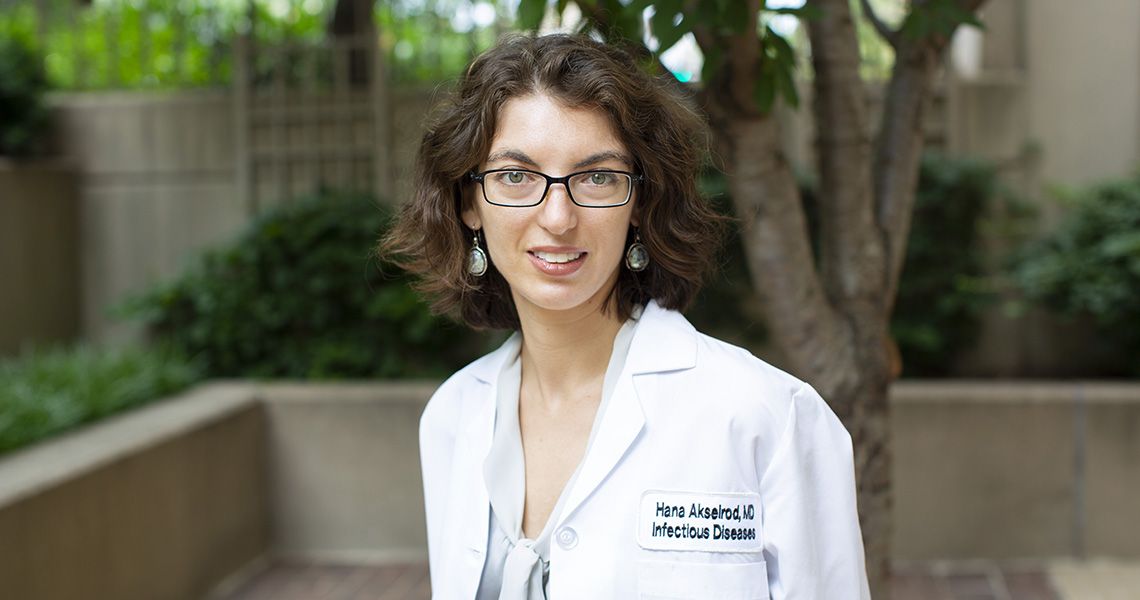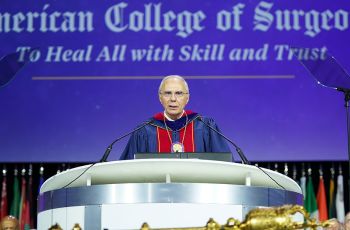Assistant Professor of Medicine at the George Washington University (GW) School of Medicine and Health Sciences (SMHS) Hana Akselrod, MD, MPH, has been selected to serve as the COVID-19 Response Lead for the GW Medical Faculty Associates (GW MFA).
Akselrod, who also serves as co-director of the COVID-19 Recovery Clinic at the GW MFA, will guide the GW MFA leadership on COVID-19 policy decisions to protect the health and safety of patients, health care workers, and the community. She will report to William Borden, MD, MBA, interim chair of the Department of Medicine and chief quality and population health officer at the GW MFA.
“From the very early stages of this pandemic,” said Borden, “Dr. Akselrod has been there for our patients and all of us in the hospital with acutely ill patients, in clinic with recovery, in the media communicating public health messages, on webinars educating all of us, and in setting safety protocols. I can think of no one better to lead the MFA forward as we continue to care for our patients and support our colleagues through this pandemic.”
Akselrod will collaborate with both university and GW Hospital leaders on pandemic response efforts and will support the GW MFA occupational health and operations leaders with the implementation of health and safety protocols. She also will offer guidance on related GW MFA policies, such as influenza protocols and emergency planning and response procedures.
“In this role, I will be coordinating and collaborating with Dr. Ray Lucas [medical director of the new Occupational Health Program and associate professor of emergency medicine at SMHS] and Dr. Bruno Petinaux [chief medical officer for GW Hospital],” said Akselrod. The Occupational Health Program leads the university-wide testing, contact tracing, isolation protocols, and occupational and mental health support for GW MFA employees.
As COVID-19 lead, she will also ensure the GW MFA meets all DC Health regulatory requirements and keeps pace with the changing conditions, scientific data, and public health recommendations. She will gather public guidance and formal requirements from government entities, the Department of Health, and professional organizations to adjust internal operational protocols. The exchange of information, according to Akselrod, is a two-way street. She recently gave an update to the D.C. Department of Health Branch for HIV/AIDS, Hepatitis, STD, and TB Administration about COVID-19 in people living with HIV and the implications for treatment and vaccination.
“The information flow goes both ways,” she said. “We rely on them to provide public outreach, policy guidance, disease surveillance, contact tracing, [and] testing services, and they rely on university partners to provide expert input on particular topics.”
For information about the latest visit the university’s campus health page.




